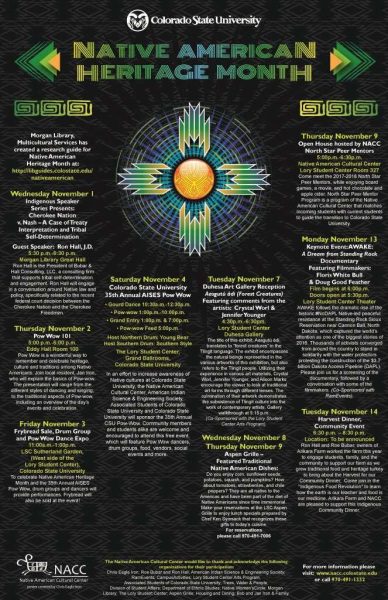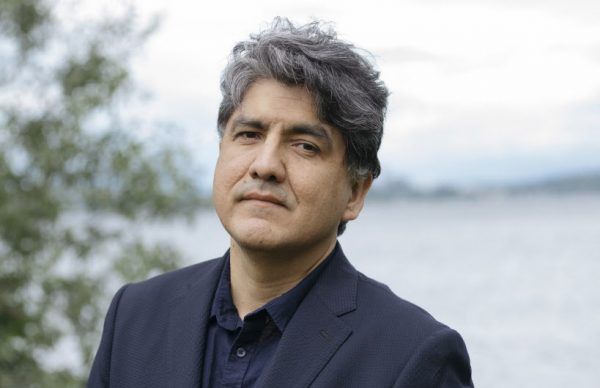
November is Native American Heritage Month. A Cherokee American Indian, J.C. Elliott-High Eagle, authored the legislation for American Indian Awareness Week in October of 1976 and it was signed by President Gerald R. Ford. This became the first official week of national recognition for the American Indian since the founding of the nation. On August 3, 1990 President of the United States George H. W. Bush declared the month of November as National American Indian Heritage Month, thereafter commonly referred to as Native American Heritage Month. In his 2013 National Native American Heritage Month Proclamation, President Barack Obama began, “From Alaskan mountain peaks to the Argentinian pampas to the rocky shores of Newfoundland, Native Americans were the first to carve out cities, domesticate crops, and establish great civilizations.” He went on to say,
As we observe this month, we must not ignore the painful history Native Americans have endured — a history of violence, marginalization, broken promises, and upended justice. There was a time when native languages and religions were banned as part of a forced assimilation policy that attacked the political, social, and cultural identities of Native Americans in the United States. Through generations of struggle, American Indians and Alaska Natives held fast to their traditions, and eventually the United States Government repudiated its destructive policies and began to turn the page on a troubled past.
The Native American Cultural Center (NACC) is hosting their own series of events this month, including the Pow Wow on Saturday, Nov 4. To find out more about Native American Heritage Month events happening on campus, go to the Native American Cultural Center’s website.
In the same way we’ve celebrated Black History Month (February), Women’s History Month (March), National Poetry Month (April), as well as Filipino American Heritage Month, Hispanic Heritage Month, and LGBT History Month (all in October), we will spend this month honoring authors and educators of Native American Heritage.

Who better to start this celebration than writer, poet and filmmaker Sherman Joseph Alexie. Alexie was born in 1966 on the Spokane Indian Reservation in Washington. His Native American ancestry stems from several tribes, creating the experiences he draws upon in his writing. He was teased in school for the size of his head, a condition that stemmed from a buildup of cerebral fluid when he was an infant.
He attended high school off the reservation, in the town of Reardan, Washington, where he was the only Native American student. He excelled in school, and attended Gonzaga University in 1985 where he moved between Pre-Med and Law before finding Literature. This newfound passion pushed him to transfer to Washington State University where he studied Creative Writing.
Alexie’s first novel, Reservation Blues, was published in 1996 and won the 1996 American Book Award. Since then, he’s published numerous novels, memoirs, short stories, poems and films that expound upon his Native American identity. Many of these writings deal with themes that stem from that identity, including poverty, violence, and alcoholism, something he was exposed to through both his parents.
Alexie’s 2007 semi-autobiographical novel The Absolutely True Diary of a Part-Time Indian gained tremendous attention in Young Adult Literature. This novel won many awards, including the 2007 U.S. National Book Award for Young People’s Literature and the Odyssey Award.
The Guardian explains this book as “more than an entertaining read, more than an engaging story about the North American Indian kid who makes it out of a poor, dead-end background without losing his connection…Opening this book is like meeting a friend you’d never make in your actual life and being given a piece of his world, inner and outer. It’s humane, authentic and, most of all, it speaks.”
Since beginning his book tour for his new memoir You Don’t Have To Say You Love Me, Alexie has been transparent about his struggle with depression and how it led to the cancellation of his book tour.
His Facebook post announcing the cancellation explained that his mother’s death “has haunted me in spectacular ways since I published my memoir a month ago.” He goes on to explain that “here I am–the son and the mother combined–who needs to take a big step back and do most of my grieving in private. My memoir is still out there for you to read. And, when I am strong enough, I will return to the road. I will return to the memoir. And I know that I will have new stories to tell about my mother and her ghost. I will have more stories to tell about grief. And about forgiveness.” (Read more about the tour cancellation in this Buzzfeed article).
If you are struggling with depression, check out these resources available through the CSU Health Services. (If you are enrolled in 6 or more credit hours per semester, you are eligible for up to five Individual/Couples counseling sessions per semester). There’s also the National Suicide Prevention Lifeline (1-800-273-8255) and Suicide Prevention Coalition of Colorado. Or, if you prefer texting, you can check out the Crisis Text Line.